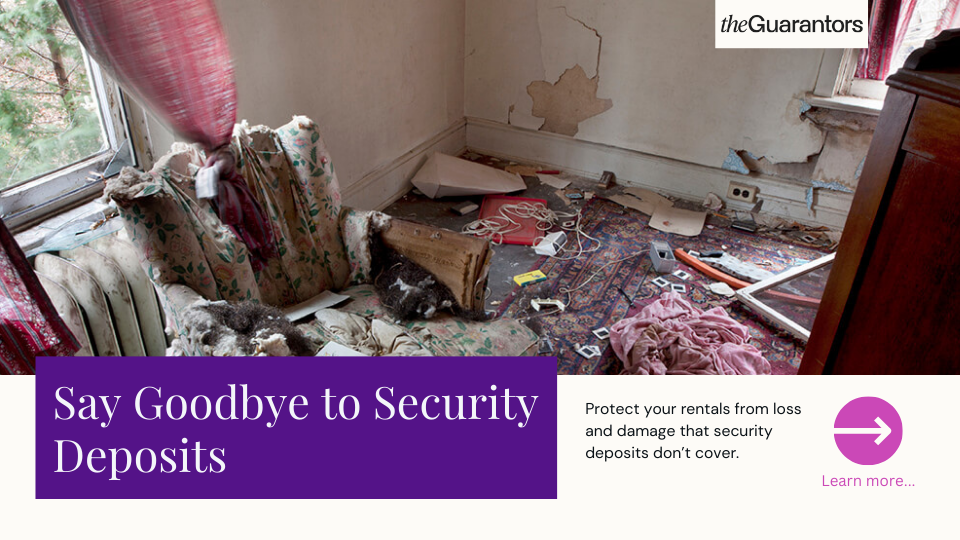Understanding Alaska Security Deposit Laws
As a landlord or tenant in Alaska, it is crucial to be familiar with the state’s security deposit laws to ensure compliance and protect your rights. A security deposit is a sum of money paid by the tenant to the landlord at the beginning of a lease agreement to cover any damages or unpaid rent. Alaska has specific regulations in place to govern the handling of security deposits.
Key points to understand about Alaska security deposit laws include:
- What Is a Security Deposit?
A security deposit is a refundable amount of money paid by the tenant to the landlord as a form of financial protection against potential damages to the rental property or unpaid rent. - Overview of Alaska Security Deposit Laws
Alaska has established laws and regulations to outline the requirements and limitations for both landlords and tenants regarding security deposits. These laws aim to protect the rights and interests of both parties involved.
Questions that will be addressed include:
- What Are the Key Requirements for Security Deposits in Alaska?
- What Are the Maximum Security Deposit Limits in Alaska?
- What Are the Rules on Security Deposit Interest in Alaska?
- What Are the Responsibilities of the Landlord Regarding Security Deposits?
- What Are the Rights and Protections of Tenants in Alaska?
Changes in Alaska security deposit laws for 2024 will also be discussed, including any new requirements and implications for landlords and tenants. Tips will be provided for landlords and tenants to ensure compliance with these laws, as well as guidance on common issues and disputes related to security deposits.
By understanding Alaska security deposit laws, both landlords and tenants can maintain a fair and transparent rental process, promoting a positive and respectful landlord-tenant relationship.
Key takeaways:
- New requirements for security deposits in Alaska: The updated laws for 2024 introduce new requirements for security deposits, which both landlords and tenants need to be aware of in order to stay in compliance.
- Implications of the updated laws: The changes in Alaska security deposit laws have implications for both landlords and tenants. They may affect the amount that can be charged for security deposits and the way that landlords handle deductions and refunds.
- Tenant rights in dealing with security deposits: Tenants should be aware of their rights when it comes to security deposits, including the steps they can take in case of noncompliance by the landlord or if they have concerns about deposit deductions and refunds.

Understanding Alaska Security Deposit Laws
Understanding Alaska security deposit laws is essential for both tenants and landlords. These laws clearly define the rights and responsibilities regarding security deposits in rental properties. It is important to note the following key points:
- Maximum amount: In accordance with Alaska law, landlords can collect a maximum of two months’ rent as a security deposit.
- Utilization of the deposit: Landlords are allowed to use the deposit to cover unpaid rent, damages that surpass normal wear and tear, as well as cleaning expenses.
- Return deadline: It is mandatory for landlords to return the security deposit within 14 days after the tenant moves out.
- Itemized list: In case any portion of the security deposit is retained, landlords must provide an itemized list of deductions.
By familiarizing themselves with Alaska security deposit laws, both tenants and landlords can confidently navigate rental agreements.
What Is a Security Deposit?
A security deposit, also known as a rental deposit, is an amount of money paid by a tenant to a landlord at the beginning of a lease agreement. This monetary sum serves as a form of protection for the landlord in the event that the tenant causes damage to the property or fails to fulfill their other obligations outlined in the lease. It is common practice for the deposit to be held in a trust account throughout the duration of the lease and then returned to the tenant once the lease ends, with any necessary deductions for repairs or unpaid rent. In the state of Alaska, landlords are required to comply with specific laws and regulations pertaining to security deposits, including regulations that outline the maximum amount that can be charged. It is of utmost importance for both landlords and tenants to familiarize themselves with these laws in order to ensure compliance and safeguard their respective rights.
Overview of Alaska Security Deposit Laws
Security deposit laws in Alaska provide protections for both landlords and tenants. Here is an overview of these laws:
– Maximum amount: Landlords cannot charge more than two months’ rent as a security deposit.
– Use of the deposit: The landlord can use the deposit to cover unpaid rent or damages beyond normal wear and tear.
– Return of the deposit: Landlords must return the deposit within 14 days after the tenant moves out, along with an itemized list of deductions if any.
– Non-compliance: If a landlord doesn’t follow the laws, tenants can take legal action to recover their deposit.
True story: A tenant in Alaska successfully sued their landlord for not returning their security deposit within the required time frame. The court ruled in favor of the tenant and awarded them the full amount of the deposit plus additional damages. This highlights the importance of landlords understanding and complying with Alaska’s security deposit laws.
What Are the Key Requirements for Security Deposits in Alaska?
The key requirements for security deposits in Alaska include providing a written rental agreement, a premises condition statement, and a contents inventory. Landlords must also establish a trust account to hold the deposit and provide tenants with the account details. In accordance with Alaska law, security deposits cannot exceed the equivalent of two months’ rent, and landlords must pay interest on the deposit annually. Once the tenancy ends, landlords have a 14-day period to return the deposit or provide an itemized deduction statement. It is essential for tenants to provide a written notice to vacate and allow landlords to conduct an inspection of the premises. Failure to comply with these requirements can lead to legal consequences.
Let me share a true story that exemplifies the significance of these regulations. Mary rented an apartment in Anchorage and submitted a security deposit of $1,000. Upon moving out, she anticipated a complete refund. However, the landlord failed to return the deposit within the mandated timeframe of 14 days. Feeling frustrated, Mary sought guidance from a local tenants’ rights organization. With their assistance, she composed a demand letter, referencing the specific laws regarding security deposits in Alaska. Recognizing the serious implications of noncompliance, the landlord promptly returned the deposit. This occurrence vividly illustrates the importance of being aware of and asserting your rights as a tenant.
What Are the Maximum Security Deposit Limits in Alaska?
The maximum security deposit limits in Alaska vary depending on the length of the tenancy and the type of rental unit. For weekly rentals, the maximum security deposit is set at one week’s rent. If you are renting on a monthly basis, the maximum security deposit is equivalent to two month’s rent. For rentals with a term lasting over one year, the maximum security deposit is capped at three month’s rent. It is of utmost importance for landlords and tenants to be aware of these limits in order to comply with Alaska’s security deposit laws.
What Are the Rules on Security Deposit Interest in Alaska?
In Alaska, there are specific rules regarding the interest on security deposits. According to Alaska Security Deposit Laws, landlords are obligated to place security deposits in a financial account, such as a trust account. The interest accrued on the deposit must be paid to the tenant at the end of the tenancy, unless the tenant agrees in writing to forego the interest. This ensures that tenants receive some sort of return on their deposits while they are renting. It’s crucial for both landlords and tenants in Alaska to be aware of these rules to maintain compliance and understanding of their rights and responsibilities.
Pro-tip: To ensure compliance with Alaska Security Deposit Laws, landlords should keep accurate records of the deposit and any interest accrued, along with obtaining written agreements from tenants regarding the interest payment.
What Are the Responsibilities of the Landlord Regarding Security Deposits?
The responsibilities of landlords regarding security deposits are an important aspect of renting a property. As a landlord, it is crucial to handle the deposit properly and follow all the necessary laws and regulations. This includes documenting the condition of the rental unit and returning the deposit within the required timeframe. To ensure compliance, landlords must place the deposit in a separate financial account and provide tenants with a written receipt. Additionally, conducting a move-in inspection is essential to record any existing damages prior to tenancy. This helps in protecting both the landlord and the tenant’s interests. It is also the responsibility of landlords to maintain the deposit in a financial account and inform tenants in writing about any deductions made from the deposit. Furthermore, landlords must adhere to the laws regarding termination of tenancy and ensure the return of the deposit in a timely manner. By fulfilling these responsibilities, landlords contribute to a smooth and fair rental process.
What Are the Rights and Protections of Tenants in Alaska?
Tenants in Alaska have certain rights and protections when it comes to security deposits. They have the right to receive written notice of the specific reasons for any deductions made from their deposit. Additionally, tenants also have the right to request an itemized list of the costs deducted and the right to dispute any improper deductions. Landlords are legally required to keep tenants’ security deposits in a separate trust account. If landlords fail to comply with these rights and protections, tenants can take legal action. It is important for tenants to understand their rights and communicate with their landlords to ensure a fair and smooth rental experience.
Changes in Alaska Security Deposit Laws for 2024
Alaska has introduced significant changes in its security deposit laws for 2024. It is of utmost importance for landlords and tenants to stay informed about these regulatory updates to ensure compliance and safeguard their rights. The newly implemented laws stipulate the maximum allowable amount that landlords can charge for security deposits, establish a timeline for the return of deposits, and specify penalties for any violations. These revisions aim to provide enhanced protection and fairness for tenants in the rental market. It is vital for both parties to acquaint themselves with the revised laws in order to prevent any future misunderstandings or disputes.
In recent years, Alaska has witnessed a surge in rental disputes primarily due to unclear security deposit regulations. This necessitated a thorough examination and revamping of the existing legislation. The modifications made in 2024 are the outcome of extensive consultations with landlord and tenant groups, seeking to strike a balance between safeguarding tenant rights and addressing landlord concerns. These updated laws have significantly improved transparency and accountability in the rental market, fostering a more harmonious environment for both landlords and tenants.
What Are the New Requirements for Security Deposits in Alaska?
Starting in 2024, there are new requirements for security deposits in Alaska. Landlords must now provide tenants with a detailed written notice explaining the conditions under which the deposit may be retained or deductions made. Landlords must now return the deposit within 30 days after the termination of the tenancy. Failure to comply with these new requirements may result in penalties for the landlord. To ensure compliance, landlords should keep a thorough record of any deductions made from the deposit and provide an itemized statement to the tenant. Tenants should be aware of their rights and document the condition of the premises upon move-in and move-out.
What Are the Implications of the Updated Laws for Landlords and Tenants?
The implications of the updated laws for landlords and tenants in Alaska are significant. Landlords must be well-versed in the new requirements concerning security deposits, which involve providing a premises condition statement and maintaining a trust account. Failure to comply with these requirements can lead to legal consequences. It is crucial for landlords to understand their obligations, including providing written notice for deposit deductions and refunding the deposit within a specific timeframe.
On the other hand, tenants can benefit from the enhanced protections offered by the updated laws. They can expect more transparent guidelines on how their security deposits should be handled. This includes receiving written notice regarding any deductions, receiving an itemized list of deducted costs, and having the opportunity to challenge deductions. Tenants should also familiarize themselves with their rights in case the landlord fails to comply, such as seeking legal recourse or contacting the appropriate authorities.
To ensure compliance and safeguard their respective rights and interests, both landlords and tenants must stay informed about the updated laws. Landlords are advised to seek guidance from legal professionals or consult reliable resources to fully comprehend the specific implications of these updated laws. Similarly, tenants should educate themselves about their rights and, if necessary, consider seeking legal advice.
Tips for Landlords and Tenants in Compliance with Alaska Security Deposit Laws
When it comes to complying with Alaska security deposit laws, landlords and tenants should follow these helpful tips:
- Landlords should thoroughly familiarize themselves with Alaska’s security deposit laws to ensure compliance.
- Before signing a lease agreement, tenants should carefully review the terms and conditions regarding security deposits.
- Landlords must provide tenants with a written receipt acknowledging the security deposit payment.
- Tenants should document the condition of the rental unit, including photos, to avoid disputes when the lease ends.
- Both parties should maintain open communication to address any concerns or issues regarding the security deposit.
What Steps Should Landlords Take to Ensure Compliance?
- Educate themselves: Landlords should thoroughly understand the Alaska Uniform Residential Landlord & Tenant Act, Article 02 (AS 34.03.010 – 34.03.360) to know their rights and obligations.
- Review and update rental agreements: Landlords must ensure that their rental agreements comply with the current legislation and include all required information.
- Document the premises: Landlords should conduct a thorough inspection of the property before the tenant moves in and complete a premises condition statement to document any existing damages.
- Create a comprehensive move-in/move-out process: This includes providing the tenant with a contents inventory, explaining expectations for returning the property in good condition, and discussing any deductions from the deposit.
- Maintain a separate trust account: Landlords must hold security deposits in a separate financial account, keeping accurate records of all deposits and deductions.
- Provide written notice: Landlords must provide tenants with a written notice stating the amount of the security deposit, the account where it is held, and the tenant’s right to inspect the premises at move-in and move-out.
- Adhere to refund timelines: Landlords should promptly return the security deposit, along with an itemized statement of any deductions, within the specified time frame.
To ensure compliance with Alaska security deposit laws, landlords need to follow a specific set of steps. First and foremost, they should educate themselves about the Alaska Uniform Residential Landlord & Tenant Act, Article 02 (AS 34.03.010 – 34.03.360) in order to fully understand their rights and obligations. Additionally, it is crucial for landlords to regularly review and update their rental agreements to ensure they align with the current legislation and include all necessary information.
Another important step is to carefully document the condition of the property before a new tenant moves in. This should be done through a thorough inspection and the completion of a premises condition statement, which provides a record of any existing damages.
In order to facilitate a smooth move-in and move-out process, landlords should create a comprehensive plan. This includes providing the tenant with a contents inventory, setting clear expectations for returning the property in good condition, and discussing any potential deductions from the security deposit.
Furthermore, landlords are required to keep security deposits in a separate trust account and maintain accurate records of all deposits and deductions. This ensures transparency and accountability.
Providing tenants with a written notice is also an important step. This notice should include details such as the amount of the security deposit, the account where it is being held, and the tenant’s right to inspect the premises both at move-in and move-out.
Lastly, adherence to refund timelines is crucial. Landlords should promptly return the security deposit, along with a detailed itemized statement of any deductions, within the specified time frame.
By following these steps, landlords can ensure compliance with Alaska security deposit laws and maintain a positive and lawful landlord-tenant relationship.
What Rights Should Tenants Be Aware of When Dealing with Security Deposits?
Tenants should be aware of their rights when dealing with security deposits. It is important for tenants to thoroughly review the rental agreement and document any damages or issues with the premises upon move-in to protect their rights. These rights include the right to receive a written notice of the amount of the deposit, the right to have the deposit held in a separate trust account, and the right to receive interest on the deposit. Furthermore, tenants also have the right to a detailed itemization of any deductions from the deposit and the right to challenge any improper deductions. So, what rights should tenants be aware of when dealing with security deposits?
Common Issues and Disputes Related to Security Deposits in Alaska
Common Issues and Disputes Related to Security Deposits in Alaska can commonly arise between landlords and tenants. Some problems that are frequently encountered include disagreements over the amount of the deposit, deductions made for damages, and the return of the deposit at the end of the lease. Lack of documentation and improper communication are additional factors that can potentially lead to disputes. In order to prevent these issues from occurring, it is crucial for both parties to thoroughly read and comprehend the lease agreement. Additionally, conducting a detailed move-in inspection and maintaining clear communication throughout the tenancy are essential steps to take. Here’s a pro-tip: By keeping records of communications and documenting the condition of the unit before and after the tenancy, disputes can be effectively resolved.
How to Handle Deposit Deductions and Refunds?
Are you wondering how to handle deposit deductions and refunds? It is crucial for both landlords and tenants to handle them properly. Follow these steps:
- Inspect the premises: Before refunding the deposit, make sure to inspect the rental unit for any damages beyond normal wear and tear.
- Determine deductions: If there are any damages, calculate the cost of repairs or replacements required and deduct them from the deposit.
- Provide itemized statement: Within 14 days, present the tenant with a detailed statement of deductions and the remaining balance.
- Return the deposit: Within 30 days, refund the remaining deposit amount to the tenant, alongside the itemized statement.
- Communicate with the tenant: Maintain open communication with the tenant throughout the process, offering explanations and receipts when necessary.
What Steps Can Tenants Take in Case of Noncompliance by the Landlord?
If a tenant finds their landlord is not complying with Alaska’s security deposit laws, there are certain steps they can take to address the issue. These steps include:
- Review the terms of the rental agreement and familiarize oneself with the specific obligations outlined for the landlord regarding security deposits. This is important to understand what steps can tenants take in case of noncompliance by the landlord?
- Document any instances of noncompliance with the laws, such as failure to provide a written notice or failure to return the deposit within the required timeframe. This will help strengthen the case when tenants want to take legal action against landlord noncompliance.
- Communicate with the landlord to address the issue and request compliance with the laws. By discussing the matter with the landlord, tenants can try to resolve the noncompliance in a peaceful manner.
- If the landlord does not rectify the noncompliance, consider sending a formal written notice outlining the specific violations and requesting immediate resolution. This step should be taken to make the landlord aware of the consequences of their actions and provide an opportunity for them to rectify the situation.
- Consult with a legal professional or tenant advocacy group to understand the options available and to seek guidance on how to proceed, such as filing a complaint or initiating legal action. When facing noncompliance by the landlord, it is important for tenants to seek expert advice and explore all available legal avenues.
Some Facts About Alaska Security Deposit Laws: What’s new in 2024:
- ✅ Landlords in Alaska are prohibited from demanding or receiving prepaid rent or a security deposit that exceeds two months’ periodic rent. (Source: Our Team)
- ✅ If the monthly rent of a rental unit exceeds $2,000, then the landlord can demand a security deposit or prepaid rent that exceeds two months’ rent. (Source: Our Team)
- ✅ Upon termination of the tenancy, landlords can use the security deposit or prepaid rent to cover accrued rent and damages caused by the tenant’s noncompliance with AS 34.03.120. (Source: Our Team)
- ✅ The landlord must provide a written itemized notice of accrued rent and damages, and mail it to the tenant’s last known address within a specified time limit. (Source: Our Team)
- ✅ Normal wear and tear is not considered damages, but damages caused by the landlord’s failure to prepare for expected conditions or comply with obligations under this chapter are included. (Source: Our Team)
Frequently Asked Questions
Q1: What are the limitations on prepaid rent and security deposits in Alaska?
A1: According to Alaska Statute Sec. 34.03.070, landlords are prohibited from demanding or receiving prepaid rent or a security deposit that exceeds two months’ periodic rent, unless the monthly rent for the rental unit exceeds $2,000.
Q2: Can landlords use prepaid rent or security deposit to cover damages?
A2: Yes, landlords can use prepaid rent or security deposit to cover accrued rent and damages caused by the tenant’s noncompliance with AS 34.03.120. The damages must be itemized in a written notice and mailed to the tenant’s last known address within a specified time limit.
Q3: Is normal wear and tear considered as damages?
A3: No, normal wear and tear is not considered as damages. However, damages caused by the landlord’s failure to prepare for expected conditions or comply with obligations under the Alaska Uniform Residential Landlord & Tenant Act may be included.
Q4: How should landlords handle prepaid rent and security deposits?
A4: All money paid by the tenant as prepaid rent or a security deposit must be promptly deposited in a trust account in a bank, savings and loan association, or licensed escrow agent. The landlord must provide the tenant with the terms and conditions for withholding the prepaid rent or security deposit.
Q5: What happens if the landlord fails to comply with refund requirements?
A5: If the landlord willfully fails to comply with the itemization and refund requirements, the tenant may recover an amount not exceeding twice the actual amount withheld. This section does not prevent either the landlord or tenant from seeking other damages under the Alaska Uniform Residential Landlord & Tenant Act.
Q6: What are the time limits for refunding prepaid rent or security deposits?
A6: If the tenant provides compliant notice in accordance with AS 34.03.290, the landlord must mail the written notice and refund within 14 days after termination and possession delivery. However, if costs are deducted for damages due to the tenant’s noncompliance, the landlord has 30 days to mail the refund. If the tenant does not provide compliant notice, the landlord must mail the notice and refund within 30 days after termination, possession delivery, or when the landlord becomes aware of the dwelling unit’s abandonment.
Dave is a seasoned real estate investor with over 12 years of experience in the industry. Specializing in single-family residential real estate, David’s strategic approach combines market analysis, financial acumen, and a deep understanding of urban development trends to maximize investment returns.










